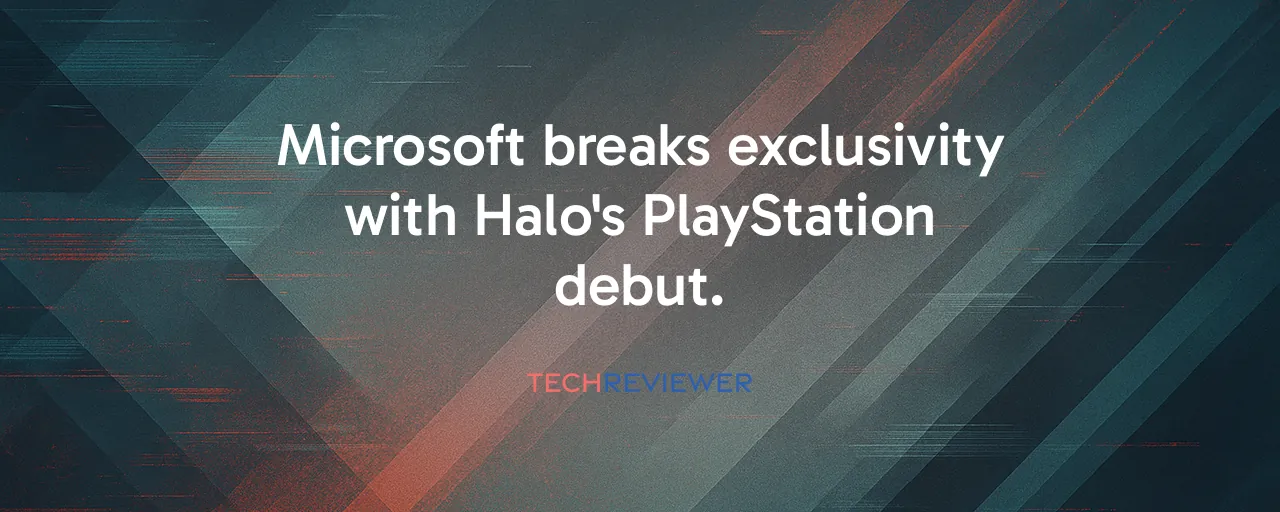A Historic Shift for Halo
For 24 years, Halo defined Xbox. Its gripping tale of Master Chief battling alien forces on a mysterious ringworld sold millions of consoles, with the original Combat Evolved moving over 5 million copies by 2006. Now, Microsoft's iconic franchise is breaking free from its Xbox roots. Halo: Campaign Evolved, a full remake of the 2001 classic, arrives in 2026 on PlayStation 5, Xbox Series X and S, and PC simultaneously. This announcement marks a bold signal that the walls between console ecosystems are crumbling.
The announcement, revealed on October 24, 2025, during the Halo World Championship livestream, caught fans off guard. Microsoft's gaming division, once fiercely protective of exclusives, is embracing a multiplatform future. Halo Studios, formerly 343 Industries, confirmed that all future Halo titles will launch on PlayStation alongside Xbox and PC. This move follows a string of Xbox exclusives like Sea of Thieves and Forza Horizon 5 hitting PlayStation in 2024 and 2025, reflecting a broader industry pivot toward accessibility.
Unreal Engine 5 Elevates the Experience
Halo: Campaign Evolved isn't a light touch-up. Built from scratch in Unreal Engine 5, the remake delivers jaw-dropping 4K visuals, re-recorded dialogue by Steve Downes as Master Chief and Jen Taylor as Cortana, and three new prequel missions expanding the story. The iconic Warthog vehicle now seats an extra passenger, and nine weapons from later Halo titles join the original arsenal. These changes aim to balance nostalgia with modern flair, though some purists, like original Bungie designer Jaime Griesemer, question tweaks to the classic formula.
Unreal Engine 5's tools, like Nanite for detailed environments and Lumen for realistic lighting, let developers craft sprawling, dynamic worlds without sacrificing performance. Unlike the proprietary Slipspace engine used for Halo Infinite, Unreal simplifies multiplatform development. Digital Foundry's Richard Leadbetter notes this switch makes porting to PlayStation seamless, a technical leap that cuts costs and speeds up production for Halo Studios.
Lessons From Sea of Thieves and Final Fantasy VII
Microsoft's multiplatform push isn't new, but Halo's inclusion is a milestone. Sea of Thieves, an Xbox exclusive for eight years, landed on PlayStation in April 2024 and saw strong sales, proving that opening up exclusives can expand audiences without killing brand loyalty. Similarly, Square Enix's Final Fantasy VII Remake, a PlayStation exclusive turned multiplatform hit, sold over 7 million copies by blending nostalgia with modern design. Both cases show that remakes and cross-platform releases can breathe new life into beloved franchises.
The lesson? Accessibility drives engagement. Sea of Thieves thrived by letting PlayStation players join Xbox and PC crews via crossplay, fostering a unified community. Halo: Campaign Evolved takes this further with full crossplay and cross-progression across all platforms, ensuring friends can team up for the campaign's 13 missions, whether on a PS5 couch or a PC setup. Unlike Final Fantasy's staggered platform releases, Halo's simultaneous launch maximizes reach from day one.
Navigating Fan Expectations
Not everyone's cheering. Xbox loyalists, who bought consoles for exclusives like Halo, worry about the platform's value. With PS5 outselling Xbox Series consoles two-to-one, Microsoft's focus on software over hardware makes sense but risks alienating its base. Meanwhile, PlayStation players gain access to a franchise that shaped modern shooters, complete with two-player local co-op and four-player online modes. The remake's focus on campaign over competitive multiplayer has sparked debate, with some fans disappointed by the lack of classic split-screen PvP.
Halo Studios faces a delicate balancing act. The franchise's 81 million copies sold and $10 billion in revenue underscore its cultural weight, but Halo Infinite's rocky launch in 2021 left trust shaky. By using 25 years of fan feedback, the studio aims to honor the original while modernizing it. Still, changes like sprint mechanics and a metallic Forerunner aesthetic have drawn criticism from purists who cherish the 2001 stone-clad designs.
A Blueprint for Gaming's Future
Halo's multiplatform leap reflects a broader industry shift. With game development costs often topping $200 million, locking titles to one platform limits potential revenue. Microsoft's CEO Satya Nadella and Xbox President Sarah Bond argue that players now expect games everywhere, from consoles to PCs to cloud services. This philosophy aligns with the projected $188.9 billion gaming market in 2025, where cross-platform titles like Fortnite and Call of Duty set the standard for universal access.
The move also opens doors for collaboration. Microsoft and Sony could share crossplay infrastructure, reducing costs for developers industry-wide. Unreal Engine 5's role as a neutral platform suggests Epic Games could lead technical standards for multiplatform games. For players, this means more freedom to choose their platform without missing out. Halo: Campaign Evolved isn't just a remake; it's a sign that gaming's future prioritizes connection over competition.
